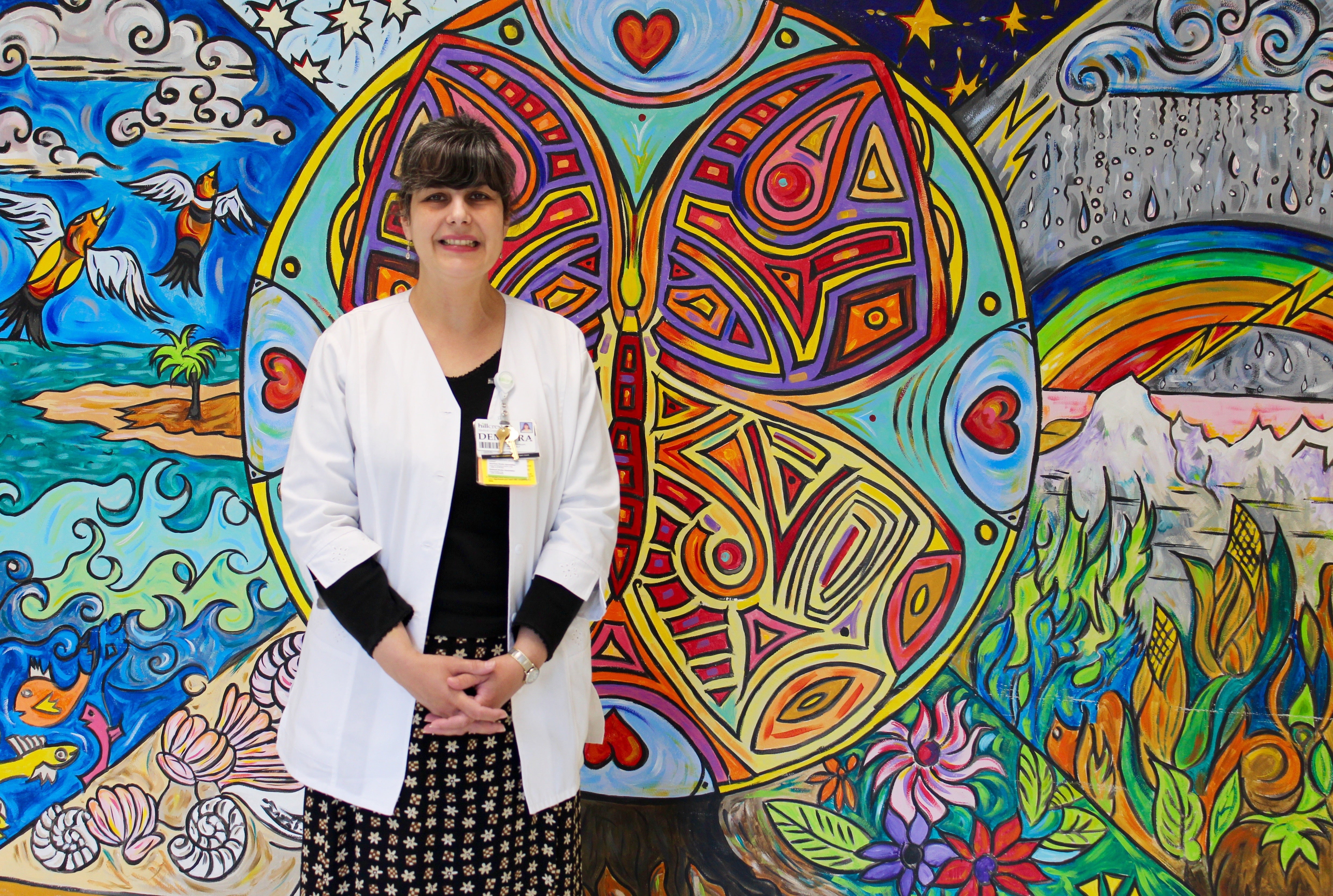
Stroke is the leading cause of disability in the United States, and there are many disorders patients may suffer from after having a stroke. One disorder is called dysphagia, which is a swallowing disorder that may occur in up to 65 percent of stroke patients. Dysphagia causes difficulty swallowing and, in some cases, patients find it impossible to swallow.
Kaiser Rehabilitation Center speech pathologist, Demetra Pinos, prefers to work with patients who have swallowing disorders. Demetra has been working at Kaiser for over 20 years. She took interest in this field after growing up around a family member who needed speech therapy. “I was very interested in it,” she recalls. “It was the early exposure that led me into it. I love to see people walk out of here, get back to their life and do what they want to do…it is such an important part of life that they want to get better at, so it’s fun to see them push themselves to get well. I feel like it [is] an honor to be around them.”
For each of Demetra’s patients, she has different techniques she uses depending on the severity of the patient’s condition. “There are all kinds of different reasons people can have swallowing problems, and there are a variety of exercises depending on the reason they are having trouble,” she explains. “Some people have more trouble with their mouth, or their tongue, or moving food around in their mouth. Other people have weakness in their swallowing musculatures, so that is a little bit different, but we have a variety of techniques to help them including some new things with their muscular stimulation that we do here, which are really effective with helping people. You have to look it all over, and see what techniques will work for different patients. We do not always use the same techniques - the patient, the family and the speech therapist all work together, and we find something that will work.”
At Kaiser Rehab, the therapy process for each patient varies on individual progress. “It is surprising how quickly most people progress,” Demetra explains. “They do not stay in rehab for very long - most are only here a couple of weeks. Therapy at Kaiser is pretty intensive, and patients have therapy all day long - that helps because I get to see them twice a day, every day, through the week, six days a week. When I work with my patients, I try and see them during meals a lot of the time, so we can do the therapy while they are actually eating - it is more functional that way. I can see in real life if they are able to swallow…so things go smoothly and there are no problems after they leave here. I want people to feel confident that it’s going to be okay. When they go home and have to eat by themselves or with their families, they’re not going to have any trouble, and it’s going to go well.”
To learn more about Kaiser Rehabilitation or to make inquires on outpatient or inpatient rehab, please click here or call 918-579-7100.
